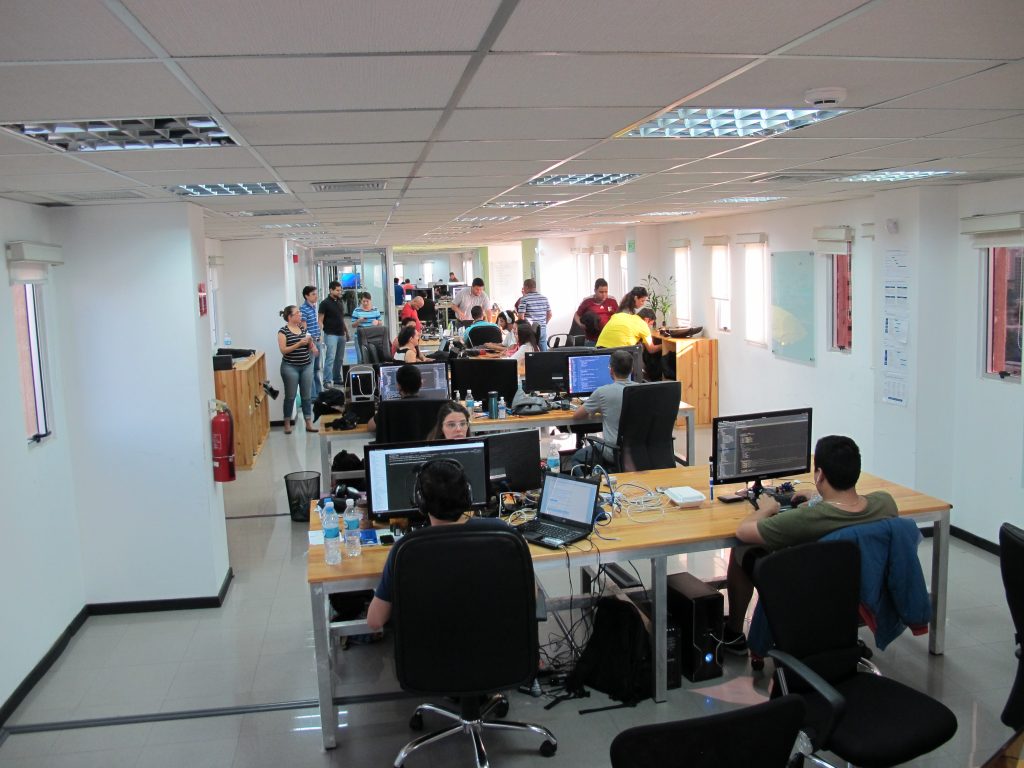While tensions between cabbies and Uber are on the rise in Canada, one Canadian startup is working on getting traction for its ridehailing app in an unconventional way: by targeting the South American market and bringing together stakeholders in the taxi industry there, before thinking about the best way to launch in North America.
After seeing a demand from Venezuelan taxi drivers and customers earlier this year, Nekso, a startup that operates under the parent company BlancLink, decided to make Venezuela its pilot market to launch and test its ride-hailing app. The app allows taxi lines and unions, taxi drivers, and customers to operate under one single platform. Customers can use Nekso to rate and select taxi drivers, and drivers can receive requests from passengers from different locations to provide safe and convenient rides.
“We started in South America because it has certain qualities, variations, demographics, and populations.”
While the idea for Nekso kicked off in Canada, BlancLink’s CEO and founder Hamid Akbari decided that the app would gain more traction if it were built and tested in Venezuela. Akbari said Maracaibo, a city in Venezuela, was the ideal test market not only because many companies use it as a test market, but also because of the country’s development talent, its diverse population, and the demand from Venezuelan taxi lines and customers for a unified ride-hailing app.
“We started in South America because it has certain qualities, variations, demographics, and populations,” said Akbari. “We felt like the result is going to be easier to replicate beyond Maracaibo, because the population is very diverse and provides a fair representation.”
In Canada, Nekso’s team focuses on marketing and business development, but in Venezuela, nearly 200 people, consisting mostly of local Venezuelans, work to build and execute the app. Akbari adds that launching Nekso in Venezuela has created a lot of opportunity to communicate effectively and collaborate, because both Venezuela and Canada operate under the same time zone and the team members regularly travel between the countries to “build a personal connection and trust.”

“Venezuela has an untapped market for talent,” said Akbari. “We’re bringing in the greatest minds to our company. The people who work in Venezuela are mostly Venezuelan, but they have diverse backgrounds and they have collaboration across all offices.”
Shortly after its launch, Nekso saw a jump in the number of people using its app from 30 rides a day to 2,000 rides a day in Venezuela. The app, which is focused on prioritizing safety and convenience for its users, is now being used in 20 different cities across four countries, including Colombia, the Dominican Republic, Ecuador, and Venezuela.
David Winterstein, the director of corporate development at BlancLink, said Nekso has been successful in these countries because its creators are trying to build the app in a way that suits the unique and diverse needs of taxi industries in every country.
“We approach our international operations with an open mind so it’s not us trying to impose what works in Canada.”
“We approach our international operations with an open mind so it’s not us trying to impose what works in Canada, but rather what is going to work in every Latin American country,” said Winterstein. “It’s more of, ‘let’s work with people from the ground.’ We take the time to analyze. We take the time to work with our local partners. We really collaborate and support them to build the perfect platform.”
While Nekso is growing in popularity in South America, its prospects of being used in Canada are still under discussion. Akbari said that although Nekso has the potential to succeed in Canada, the startup needs to see a greater demand from Canadian taxi lines and unions; a demand that may be lacking due to tensions between companies like Uber and traditional taxi lines.
“Uniting and unifying the union behind one platform has a significant benefit as we have seen it first hand in South America,” said Akbari. “We are open to bringing it [Nekso] to Canada after we open conversation about whether there’s interest on their side.”
For the various players in the taxi industry, BlancLink is hoping to provide an alternative to companies like Uber as it tries to bring together taxi lines, drivers, and customers rather than phase them out. “Uber wants to stop taxi lines. We don’t,” said Akbari. “We have a different approach. We want to empower taxi drivers and taxi lines to best serve their clientele, make their operation more effective, and make their revenue.
Nekso is preparing to launch in other countries such as Argentina and Panama over the next year.

